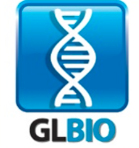About the Group
Public Description
Call for Abstracts
Special Session on Bioinformatics Education
The Great Lakes Bioinformatics Conference (GLBIO) has a long tradition of hosting talks, outreach activities, and interactive workshops in bioinformatics education drawing on a vibrant community of educators from the Great Lakes region and beyond. This year, the program will for the first time devote a special session specifically to bioinformatics education, including both invited and contributed talks, poster presentations, and a panel discussion intended to cover a wide spectrum of current topics in bioinformatics education.
We are soliciting short papers (abstracts) in all areas of bioinformatics education. Topics of interest include, but are not limited to, the following:
* Bioinformatics and computational biology curriculum development
* Innovative course developments
* Novel pedagogical strategies and their application
* Online and other technology-assisted learning in bioinformatics
* Experiences with teaching bioinformatics material to computer science, life science, or healthcare students and professionals
* Educational assessment mechanisms and experiences
* Efforts at outreach and broadening participation
Our intention is to offer a technically diverse program of interest both to current practitioners and aspiring educators.
SUBMISSION
Abstracts for oral presentations should be one page in length (approximately 600 words) and have no figures. The submission deadline is March 11, 2019. All accepted short papers will have the chance to publish their work in the ISCB Community Journal and will be contacted after acceptance about this opportunity.
Abstracts for consideration for poster presentations only should be half a page in length (approximately 300 words), with a general deadline of March 18, 2019 and a late submission deadline of April 15, 2019.
All submissions should be made through the general GLBIO Easychair submission site:
https://easychair.org/conferences/?conf=glbio2019
For more information on the submission process, please see:
https://www.iscb.org/glbio2019-submissions
PROGRAM
Invited Speakers
In addition to contributed talks and posters, the meeting will feature a series of invited speakers from various realms of bioinformatics education. The following are the confirmed invited speakers for 2019:
Kristin Jenkins (BioQUEST)
William Morgan (College of Wooster)
Layla Oesper (Carleton College)
Anna Ritz (Reed College)
Michael Sierk (Saint Vincent College)
Panel Discussion/Community Forum
We intend this session to be one of a variety of ongoing efforts under the auspices of the International Society for Computational Biology (ISCB) Education Community of Special Interest (COSI) to set an agenda and catalyze effort and community building in the field. This year’s theme/focus is to solicit answers to the question:
"What goals should the Bioinformatics Education Community
accomplish in the next five years?"
ORGANIZING COMMITTEE
Joseph Ayoob (University of Pittsburgh)
Kristin Jenkins (BioQUEST)
William Morgan (The College of Wooster)
Russell Schwartz (Carnegie Mellon University)
Michael Sierk (Saint Vincent College)
Lonnie Welch (Ohio University)
ABOUT GLBIO
GLBIO is organized by the Great Lakes Bioinformatics Consortium, an ISCB Regional Affiliate Society, and serves as the primary forum for bioinformatics work in the Great Lakes Region. The meeting evolved from the Ohio Conference on Computational Biology, which ran 2006-2009 and the Michigan-based Great Lakes Bioinformatics Retreat, which ran from 2002-2006. Starting in 2010, the ISCB adopted the meeting as an official ISCB conference, renamed GLBIO. Since 2010, it has grown into one of the most vibrant and successful meetings of the Society. While GLBIO is held in, and primarily draws from, the Great Lakes states and provinces – Illinois, Indiana, Michigan, Minnesota, New York, Ohio, Ontario, Quebec, Pennsylvania, and Wisconsin – it is open to all and attracts an international community of presenters and attendees.

